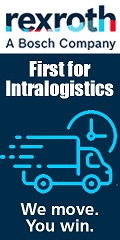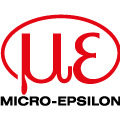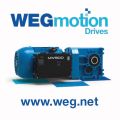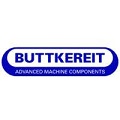
Posted to News on 28th Apr 2017, 16:10
Henkel innovations underpin automotive lightweighting
Vehicle lightweighting is one of the automotive industry's most prevalent trends, thanks largely to the presence of increasingly stringent emissions legislation around the world. It is estimated that every 100kg of reduced vehicle weight can save 8g/km of CO2.
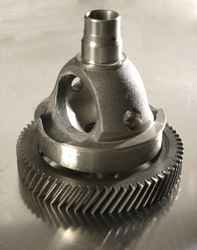
According to the European Commission, cars are responsible for around 12 per cent of the EU's total CO2 emissions. By 2021, phased in from 2020, the fleet average to be achieved by all new passenger cars is 95g/km of CO2, which is a 40 per cent reduction in comparison with the 2007 fleet average of 158.7g/km. This demands a fuel consumption of around 4.1 l/100km of petrol or 3.6 l/100km of diesel. If the average CO2 emissions of a fleet exceeds its limit value, the manufacturer will have to pay an excess emissions premium for each car registered, at a cost of €95 from the first gram of exceedance onwards.
Aluminium
With such a daunting target looming, it's clear that automotive manufacturers will need to continually reduce the mass of their vehicles. This is why recent years have witnessed a major shift in body materials from conventional steel to aluminium. To help facilitate this step-change, customised pre-treatment and coating products from Henkel are providing for both improved corrosion protection and enhanced process efficiency.
In chassis applications, for example, BONDERITE MN-T 1800, a zirconium-based product, is already replacing traditional zinc phosphate at many auto plants. Used for processing car bodies through pre-treatment systems prior to painting, the product is having a significant role in lightweighting initiatives. This is because MN-T 1800 requires fewer process steps and a shorter contact time (with very little process control changes) than traditional zinc, thus leading to significantly increased production rates. Furthermore, there are no heavy metals and the process runs at room temperature - minimising energy consumption. Over eight million vehicles on the road are already using this technology.
The shift towards lightweight aluminium wheels is also facilitated by Henkel pre-treatment and coating technologies. For instance, the improved formulation available with BONDERITE M-NT 4595 not only reduces overall process cost, but enables the development of new wheels with improved properties and lower weight. It is now being used by manufacturers around the world.
Composites
Despite the weight savings offered by using aluminium, some manufacturers are already looking beyond this material for even lighter structures. Magnesium is one proposal, which is 33 per cent lighter than aluminium, but expensive. Instead, all eyes are on the use of composite materials. Composites based on glass or carbon fibre combine savings in weight with enormous strength. Apart from composite adhesives that can be tailored to specific resins, Henkel also produces matrix resins for various types of fibre- and textile-reinforced composites, as well as binders and release agents.
This is important as the major challenge with composites for the automotive industry is predominantly one of mass production. For this reason, Henkel's tailored adhesives, together with fast-curing and reliable resins, are essential to the viability and cost efficiency of these highly automated production cycles.
A typical example is Henkel's LOCTITE MAX 2 composite matrix resin for resin transfer moulding (RTM) processes. This polyurethane-based product is very fast curing, which in turn ensures more economic processing and improved throughput. A post cure can also be performed to ensure a full cure in around 1 hour at 150degC. In addition, the quality of the resin enhances the quality of the end product.
LOCTITE MAX 2 is a two-part product that has been developed specifically for RTM with glass or carbon fibres. As a result of its low viscosity, the polyurethane matrix resin rapidly fills the mould and quickly, yet gently, impregnates the fibre material, resulting in short injection times.
This innovative resin has already enabled German tier 1 automotive supplier specialist Benteler-SGL to develop a glass-fibre-reinforced leaf spring with a projected production output of over 100,000 parts per year. Indeed, the leaf spring has now been adopted by Volvo on the XC90, its premier crossover SUV, and enables a weight saving of 4.5kg per axle.
Bonded body parts
The adhesive bonding of parts such as composite body panels is another area where Henkel has expertise. At the K 2016 exhibition in Dsseldorf last October, the company showcased an adhesive for joining a carbon fibre reinforced composite roof to a frame carrier made of thermoplastic. The adhesive, LOCTITE EA 9065, provides high shear strength and bonds effectively to many different substrates, including steel and aluminium, as well as fibre-reinforced plastics and thermoplastic composites based on polyamides. It provides high crash durability and can be formulated for fast curing.
There exist further opportunities to reduce metal weight in vehicles by using structural adhesives for crash-resistance applications. In fact, structural bonding in the automotive industry already takes place, such as the anaerobic heat-shrink bonding of ring gears to crankshafts on Volvo's SI6 engine. Offering high torque transmission capability, this innovative approach reduces the need for clamp rings and fasteners, thus reducing weight - all at a much lower investment cost than laser welding.
In another application, this time involving a driveshaft, the bonding of carbon fibre to aluminium using proven epoxy technology again affords a lightweight design, not to mention the elimination of weld distortion.
Electric vehicles
Of course, there is another major trend to throw into the vehicle lightweighting mix: the world's increasing desire for more hybrid and electric vehicles. Lightweighting is particularly important here as it can improve efficiency and increase range.
Key components include inverters, electric motors and batteries. Henkel is a market leader in electrically conductive primer coatings and sealing technologies for advanced energy storage devices such as lithium-ion batteries and ultra-capacitors used in alternative energy and hybrid vehicles. Applications include LOCTITE adhesives for bonding battery modules and pack elements, and TECHNOMELT low-pressure moulding compounds for reinforcing flexible cells and protecting sensitive electrical components. Furthermore, BONDERITE surface treatments are deployed to provide long-term corrosion protection to battery trays, cylindrical and prismatic canisters, as well as battery pack assembly structures. Among the major benefits is reduced weight with the ability to use multi-substrate materials such as aluminium, magnesium, plastics and composites.
Growing opportunities exist across the automotive electronics application range, including parts such as ECUs, sensors and converters. Henkel's product programme now includes a range of specially-adapted adhesives, which can be electrical and/or thermally conductive for example, together with formed-in-place, cured-in-placed and moulded-in-place gaskets for housing and casing applications.
Although the miniaturisation of in-vehicle electrical and electronic components has helped to reduce both space and weight, the increasing power densities involved have led to higher local temperatures. And these need to be effectively dissipated. For such applications, Henkel now offers a selection of specialised potting and encapsulation compounds based on epoxy silicone and urethane technology, combining thermal conduction with electrical insulating properties.
Ultimately, reducing CO2 emissions is rapidly ascending to the top of the automotive wish list. As such, vehicles will continue to lose weight as auto OEMs head towards the 2021 emissions target and look to steer clear of penalties. This is why Henkel is constantly evolving its adhesive, sealant and functional coatings technologies, creating competitive advantage for automotive customers along the entire value chain.
Visit www.henkel.com for more information about the company's range of products.



